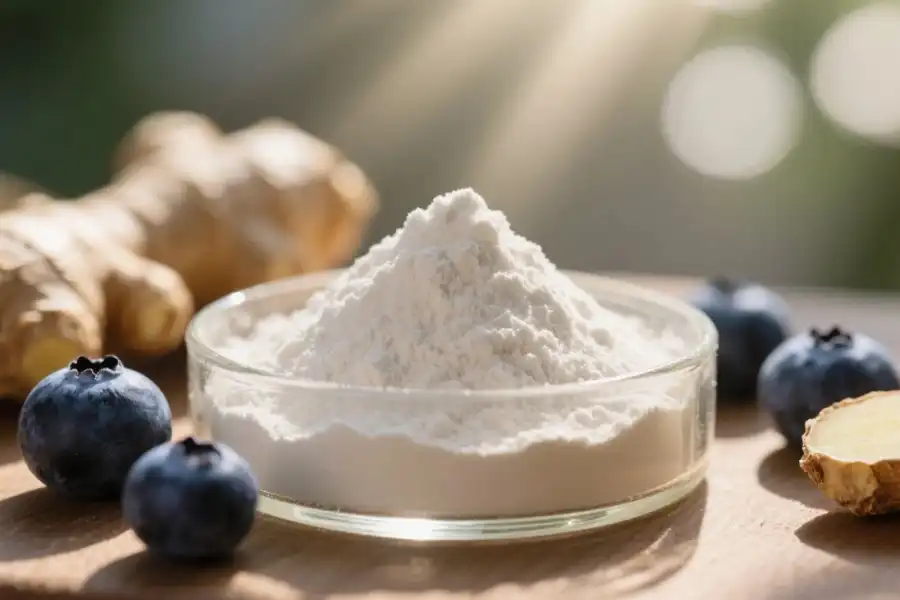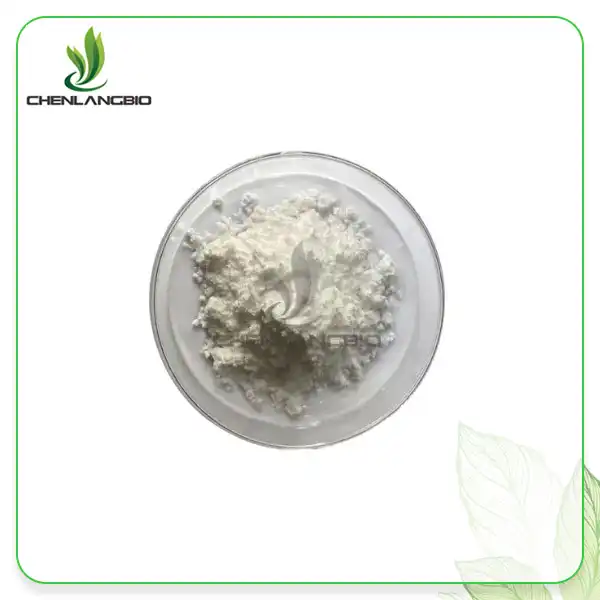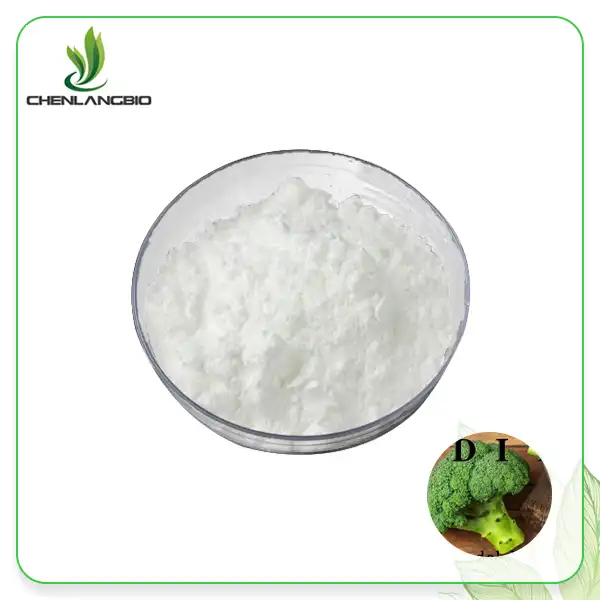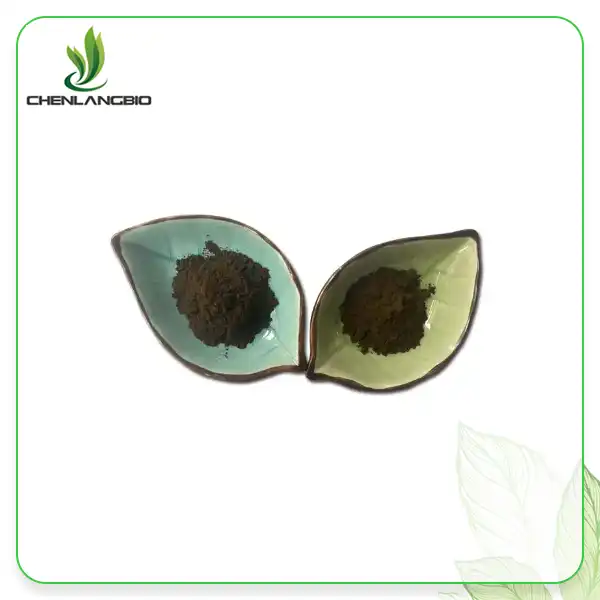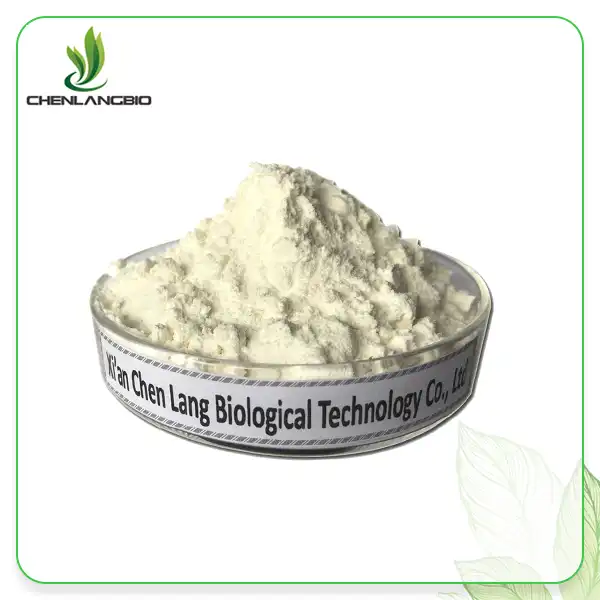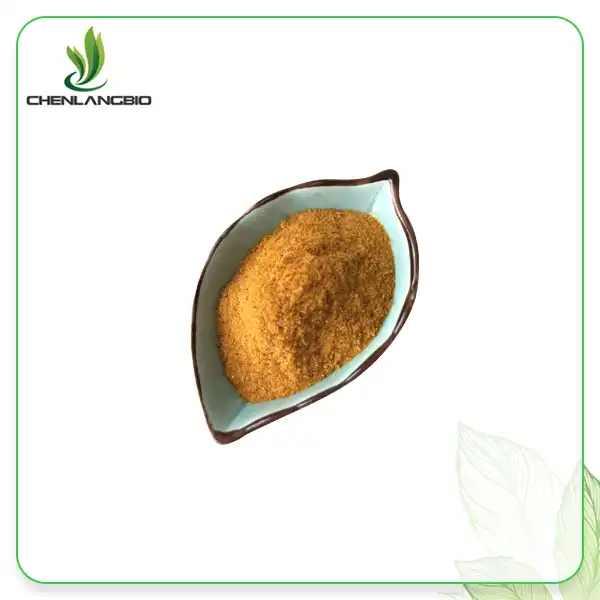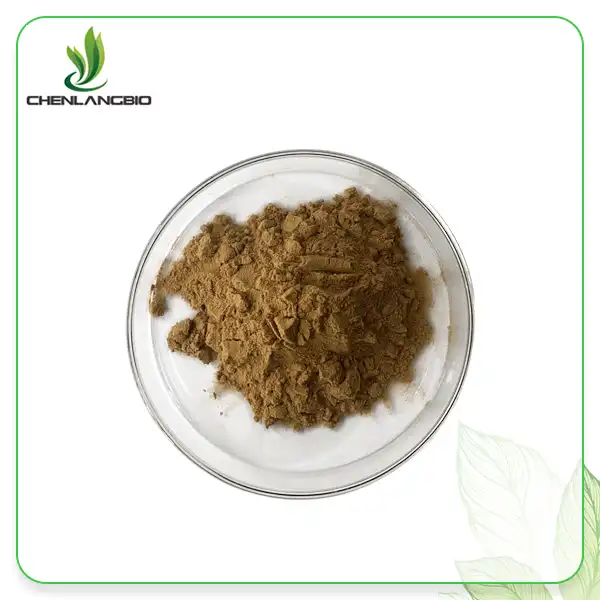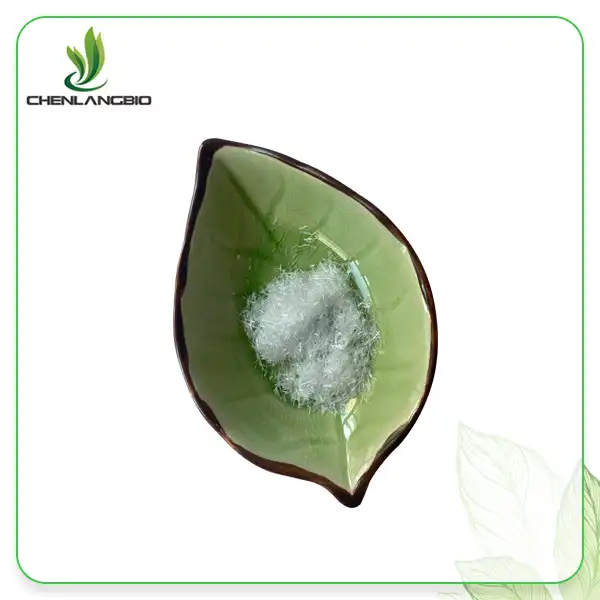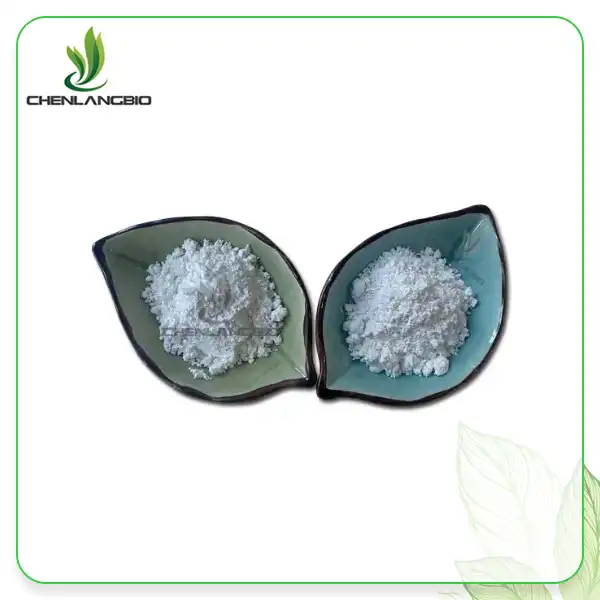What is the Difference between Chondroitin Sulfate and Glucosamine?
2025-06-23 08:07:46
When it comes to joint health supplements, Chondroitin Sulfate and Glucosamine are often mentioned together, yet they are distinct compounds with different origins and mechanisms of action. Chondroitin sulfate powder, derived primarily from animal cartilage, is a complex glycosaminoglycan that provides structural integrity to cartilage tissues. Glucosamine, on the other hand, is an amino sugar that serves as a building block for cartilage formation. While both supplements are commonly used to support joint health and mobility, understanding their differences can help individuals make more informed decisions about which supplement might best address their specific needs.
Chemical Composition and Sources of Both Supplements
Origin and Natural Sources
Chondroitin Sulfate Powder is primarily derived from animal cartilage, particularly from bovine, porcine, or shark sources. This complex molecule consists of repeating units of glucuronic acid and N-acetylgalactosamine, making it a glycosaminoglycan (GAG) that naturally occurs in human cartilage tissue. The extraction process involves careful isolation and purification to ensure high-quality Chondroitin Sulfate Powder that maintains its biological activity. At Xi An Chen Lang Bio Tech Co., Ltd., we utilize advanced dynamic countercurrent extraction and column separation technology to produce premium Chondroitin Sulfate Powder with a minimum purity of 90%, which is verified through high-performance liquid chromatography-evaporative light scattering detector (HPLC-ELSD) analysis. The natural sourcing of this compound ensures compatibility with the body's existing cartilage structures, making it an effective supplement for supporting joint health.
Molecular Structure and Properties
The molecular structure of chondroitin sulfate powder (C13H21NO16S) with a molecular weight of 479.36800 consists of a complex chain of disaccharide units that include glucuronic acid and N-acetylgalactosamine with sulfate groups attached at various positions. This unique structure gives Chondroitin Sulfate its characteristic water-retention capacity and negative charge, which are essential for its function in cartilage tissues. Glucosamine, by contrast, has a simpler structure as an amino sugar with the molecular formula C6H13NO5. Glucosamine serves as a precursor to glycosaminoglycans and is involved in the synthesis of glycolipids and glycoproteins. The structural differences between these two compounds influence their absorption rates and mechanisms of action within the body. Chondroitin Sulfate Powder's larger molecular size means it typically has a slower absorption rate compared to Glucosamine, but its effects may be more prolonged. Our laboratory testing confirms that our Chondroitin Sulfate Powder maintains its molecular integrity throughout the production process, ensuring maximum bioavailability when consumed as a supplement.
Bioavailability and Absorption
The bioavailability of both Chondroitin Sulfate Powder and Glucosamine is a critical factor in determining their effectiveness as dietary supplements. Chondroitin Sulfate, with its larger molecular structure, traditionally presents challenges in terms of oral absorption. However, advances in production technology employed by Xi An Chen Lang Bio Tech Co., Ltd. have significantly improved the bioavailability of Chondroitin Sulfate Powder. Our spray drying technology creates a fine powder with optimized particle size, enhancing dissolution and subsequent absorption in the gastrointestinal tract. Studies indicate that approximately 10-15% of orally administered Chondroitin Sulfate is absorbed intact, while the remainder undergoes partial degradation before absorption. In comparison, Glucosamine exhibits higher bioavailability, with approximately 90% absorption after oral administration. This difference in absorption rates explains why Chondroitin Sulfate Powder is often recommended at higher dosages than Glucosamine. Furthermore, the combination of these two supplements may create a synergistic effect, with Glucosamine potentially enhancing the absorption and effectiveness of Chondroitin Sulfate Powder, making them ideal companions in joint health formulations.
Therapeutic Benefits and Mechanisms of Action
Joint Health and Cartilage Support
Chondroitin Sulfate Powder and Glucosamine each contribute uniquely to joint health and cartilage support. Chondroitin Sulfate Powder, as a major structural component of cartilage, provides elasticity, flexibility, and shock-absorbing properties essential for joint functionality. It maintains the integrity and structure of cartilage tissue by attracting and retaining water within the cartilage matrix, creating a gel-like substance that cushions joints and supports smooth movement. Our high-purity Chondroitin Sulfate Powder (90% purity, CAS: 9007-28-7) enhances this effect by providing a concentrated source of these beneficial molecules. Additionally, Chondroitin Sulfate inhibits enzymes responsible for breaking down cartilage, such as matrix metalloproteinases (MMPs), effectively preventing cartilage degradation. This protective mechanism is particularly valuable for individuals experiencing osteoarthritis or age-related joint degeneration. Research indicates that consistent supplementation with quality Chondroitin Sulfate Powder can significantly slow the progression of cartilage loss, making it an essential component in long-term joint health maintenance strategies.
Anti-inflammatory Properties
The anti-inflammatory properties of chondroitin sulfate powder represent one of its most significant therapeutic benefits. Through multiple mechanisms, Chondroitin Sulfate exhibits mild anti-inflammatory effects that can alleviate joint inflammation and swelling associated with conditions like osteoarthritis and rheumatoid arthritis. Research suggests that Chondroitin Sulfate Powder may inhibit the activity of pro-inflammatory cytokines and reduce the production of nitric oxide, a mediator of inflammation in joint tissues. This anti-inflammatory action contributes to pain relief and improved joint function in individuals suffering from inflammatory joint disorders. Xi An Chen Lang Bio Tech Co., Ltd.'s Chondroitin Sulfate Powder undergoes rigorous quality control measures, including testing for purity and potency, ensuring consistent anti-inflammatory efficacy. While Glucosamine primarily works by providing building blocks for cartilage synthesis, it demonstrates more modest anti-inflammatory properties compared to Chondroitin Sulfate. The combined use of these supplements creates a comprehensive approach to joint inflammation management – Chondroitin Sulfate Powder directly reduces existing inflammation while Glucosamine supports the structural repair of damaged tissues, addressing both the symptoms and underlying causes of joint discomfort.
Synergistic Effects When Combined
The synergistic relationship between Chondroitin Sulfate Powder and Glucosamine creates a powerful combination for comprehensive joint health support. When used together, these supplements complement each other's actions through different but related mechanisms. Glucosamine stimulates the production of cartilage matrix components, particularly proteoglycans and glycosaminoglycans, while Chondroitin Sulfate Powder helps maintain the structural integrity of existing cartilage and prevents its breakdown. This dual action provides both immediate support and long-term maintenance of joint tissues. Clinical studies have demonstrated that the combination of these supplements often yields superior results compared to either supplement used alone, with enhanced pain reduction, improved mobility, and better long-term outcomes for patients with osteoarthritis. Xi An Chen Lang Bio Tech Co., Ltd. recognizes this synergy and offers high-quality Chondroitin Sulfate Powder that pairs effectively with Glucosamine supplementation. Our production process ensures consistent purity and potency, with each batch undergoing rigorous testing using advanced analytical equipment including high-performance liquid chromatography-evaporative light scattering detector (HPLC-ELSD) and ultraviolet-visible spectrophotometry (UV). The combined approach of these supplements represents a holistic strategy for addressing joint health concerns, targeting both tissue regeneration and preservation simultaneously.
Clinical Applications and Supplementation Guidelines
Dosage Recommendations and Timing
Establishing the optimal dosage and timing for Chondroitin Sulfate Powder supplementation is essential for maximizing its therapeutic benefits. Based on extensive clinical research and industry standards, the recommended daily dosage of Chondroitin Sulfate Powder typically ranges from 800 to 1,200 mg, which can be taken as a single dose or divided throughout the day. Xi An Chen Lang Bio Tech Co., Ltd. provides high-purity Chondroitin Sulfate Powder (90% purity) that allows for precise dosing to meet these recommendations. For enhanced absorption and efficacy, it is generally advised to take Chondroitin Sulfate Powder with meals, as the presence of food may facilitate its absorption in the gastrointestinal tract. In contrast, Glucosamine supplementation typically requires 1,500 mg daily, often divided into three doses of 500 mg each. When combining these supplements, timing becomes particularly important. Many healthcare professionals recommend taking both supplements simultaneously to promote their synergistic effects, ideally with breakfast or the first major meal of the day. For individuals with severe joint issues, a loading phase with higher initial dosages might be recommended, followed by a maintenance phase with standard dosages. It's worth noting that Chondroitin Sulfate Powder may take several weeks to reach its full therapeutic potential, requiring consistent supplementation for optimal results.
Safety Profile and Potential Side Effects
The safety profile of Chondroitin Sulfate Powder has been well-established through numerous clinical studies and decades of use as a dietary supplement. Generally recognized as safe (GRAS) by regulatory standards, Chondroitin Sulfate Powder from reputable manufacturers like Xi An Chen Lang Bio Tech Co., Ltd. demonstrates an excellent safety record with minimal adverse effects. Most users experience no significant side effects when taking chondroitin sulfate powder at recommended dosages. In rare cases, mild gastrointestinal discomfort, including nausea or indigestion, may occur, particularly at higher doses. These symptoms typically resolve with continued use or dosage adjustment. Our manufacturing process, which adheres to strict quality control measures and complies with international standards, ensures that our Chondroitin Sulfate Powder is free from harmful contaminants and maintains consistent purity. Compared to Chondroitin Sulfate Powder, Glucosamine has a similarly favorable safety profile but may cause different side effects in some individuals, including potential interactions with blood-thinning medications and insulin sensitivity. When used in combination, these supplements maintain their excellent safety profiles, with no significant increase in adverse effects reported. It's important to note that individuals with shellfish allergies should exercise caution with Glucosamine supplements derived from shellfish sources, whereas Chondroitin Sulfate Powder, typically derived from bovine or porcine sources, does not present this specific concern.
Special Considerations for Different Populations
Different demographic groups may experience varying responses to Chondroitin Sulfate Powder supplementation, necessitating tailored approaches for optimal outcomes. Elderly individuals often benefit significantly from Chondroitin Sulfate Powder due to age-related cartilage degeneration and increased prevalence of osteoarthritis. For this population, Xi An Chen Lang Bio Tech Co., Ltd. recommends starting with standard dosages and monitoring for improvements in mobility and pain reduction. Athletes and physically active individuals may benefit from prophylactic use of Chondroitin Sulfate Powder to support joint health during high-impact activities and accelerate recovery from sports-related joint stress. For these users, combining Chondroitin Sulfate Powder with Glucosamine provides comprehensive support for both immediate and long-term joint protection. Individuals with compromised hepatic or renal function should consult healthcare providers before initiating supplementation, as altered metabolism might affect the processing and clearance of these compounds. Pregnant and lactating women should approach supplementation with caution, although preliminary data suggests that high-quality Chondroitin Sulfate Powder presents minimal risk during these periods. Our company's commitment to producing pharmaceutical-grade Chondroitin Sulfate Powder ensures that special populations receive a product that meets the highest standards of purity and potency, minimizing potential risks while maximizing therapeutic benefits across diverse user groups.
Conclusion
Understanding the distinct properties and complementary benefits of Chondroitin Sulfate and Glucosamine empowers individuals to make informed decisions about joint health supplementation. While they differ in structure and primary mechanisms, their combined use offers comprehensive support for cartilage maintenance, inflammation reduction, and overall joint function.
Ready to experience the superior benefits of premium chondroitin sulfate powder for your joint health needs? Xi An Chen Lang Bio Tech Co., Ltd. offers pharmaceutical-grade supplements backed by rigorous quality control, advanced production technology, and professional R&D expertise. With our GMP-certified facilities, ISO certifications, and commitment to customer satisfaction, we're your trusted partner in health and wellness. Contact us today at admin@chenlangbio.com to discover how our high-quality supplements can support your journey to optimal joint health.
References
1. Clegg DO, Reda DJ, Harris CL, et al. Glucosamine, chondroitin sulfate, and the two in combination for painful knee osteoarthritis. New England Journal of Medicine. 2006;354(8):795-808.
2. Henrotin Y, Mathy M, Sanchez C, Lambert C. Chondroitin sulfate in the treatment of osteoarthritis: from in vitro studies to clinical recommendations. Therapeutic Advances in Musculoskeletal Disease. 2010;2(6):335-348.
3. Reginster JY, Bruyere O, Neuprez A. Current role of glucosamine in the treatment of osteoarthritis. Rheumatology. 2007;46(5):731-735.
4. Volpi N. Quality of different chondroitin sulfate preparations in relation to their therapeutic activity. Journal of Pharmacy and Pharmacology. 2009;61(10):1271-1280.
5. McAlindon TE, LaValley MP, Gulin JP, Felson DT. Glucosamine and chondroitin for treatment of osteoarthritis: a systematic quality assessment and meta-analysis. JAMA. 2000;283(11):1469-1475.
6. Kantor ED, Lampe JW, Peters U, et al. Use of glucosamine and chondroitin supplements and risk of colorectal cancer. Cancer Causes & Control. 2013;24(6):1137-1146.
Send Inquiry
Related Industry Knowledge
- How Can Evodiamine Powder Enhance Your Product Line's Effectiveness?
- How Does Chrysin Powder Protect Against Oxidative Stress?
- Soapnut Extract Powder for Hair Care
- How Does Kopexil Compare to Minoxidil?
- What is Podophyllin Powder Used For
- What is Dimethylmethoxy Chromanyl Palmitate Used for
- Does Sodium Copper Chlorophyllin Increase Potassium Levels
- What to Avoid When Using Bakuchiol
- How Effective is 3-O-ethyl Ascorbic Acid in Lightening Skin
- What is Broccoli Extract Glucoraphanin Powder Good For

